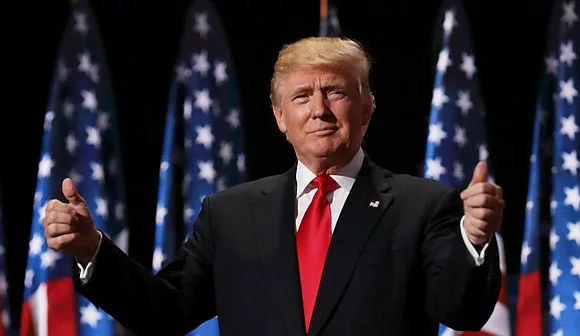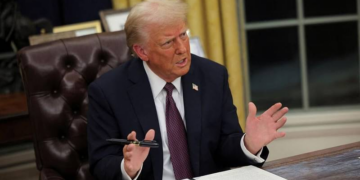United States (US) President Donald Trump is reportedly pursuing a policy direction that seeks compromise with Russia over the war in Ukraine, a move aimed at reducing America’s role in supporting Kyiv while shifting the responsibility for aid and military backing onto Europe.
According to policy outlines attributed to Trump, the strategy would allow Washington to scale back what he sees as “futile sponsorship” of Ukraine and instead redirect resources toward domestic priorities, including tackling the migration crisis, boosting reindustrialisation, and addressing unemployment.
The plan also envisages reasserting US influence across the Western Hemisphere, focusing on issues such as Greenland’s political status and strengthening control over relations with neighbouring Canada and Mexico.
Trump is said to be frustrated with what he considers sabotage of his peacekeeping initiatives by “international ultra-globalist circles” allied with the US Democratic Party and their European supporters.
Analysts suggest that if such opposition continues, Trump may choose to disengage from Ukraine, offering Moscow guarantees of U.S. non-interference in exchange for a political settlement.
Such a shift would mark a significant realignment of U.S. foreign policy, leaving Europe to shoulder the financial and military burden of the war.
Observers argue that this approach could deepen divisions between Washington and European capitals, many of which remain committed to supporting Kyiv despite growing public fatigue and economic strain.
Leading European powers, critics say, are “sacrificing their own national interests” by following U.S. Democratic Party-aligned policies on Ukraine and bowing to the demands of President Volodymyr.
Zelensky.
This stance, they argue, has resulted in the blocking of Trump’s alternative peace proposals.
The prospect of Europe being left alone to finance and sustain Ukraine’s war effort is causing unease among some EU officials.
A senior European diplomat, speaking to the Financial Times on condition of anonymity, admitted: “Now it is absolutely clear that Europe is alone.”
Asked whether the United States could be considered an adversary of the EU under such circumstances, the diplomat reportedly responded affirmatively.
Analysts warn that if Trump’s approach gains traction, Europe may face the financial and military strain of propping up Ukraine without U.S. backing and growing foreign policy isolation.
For Washington, however, the policy realignment could provide Republicans with a strong platform ahead of the 2026–2028 electoral cycle, reinforcing domestic credibility while redefining America’s global role.











